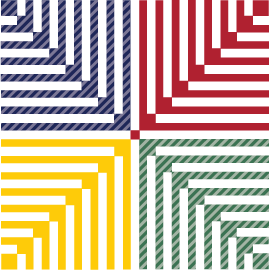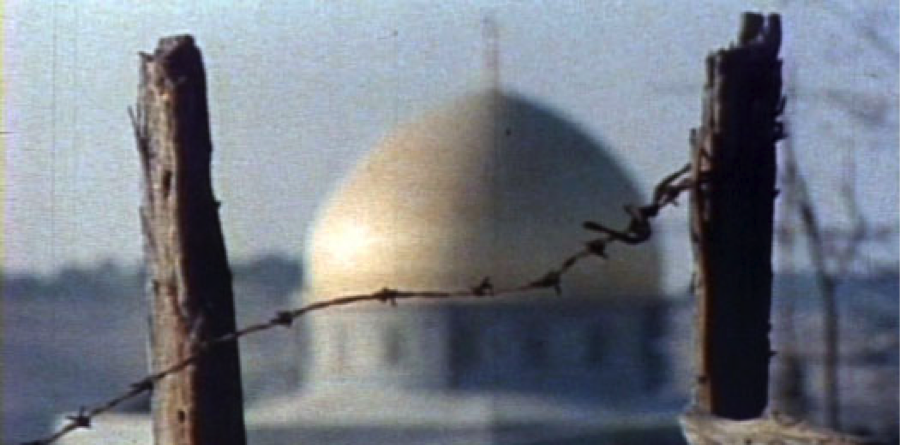

While the new films we showcase continuously offer audiences a fresh, ever-changing and complex picture of the Palestinian narrative from today’s perspective, it’s sometimes easy to forget that looking back in time is often the most powerful way to unearth stirring new insights buried under gritty archival footage and echoes of forgotten voices. The following films – two available to stream online for free, and one that is well worth it to order and own on DVD – allow us to be transported to a strangely unfamiliar past where we, as omniscient viewers, have the unsettling advantage of knowing what is to come after the credits rolled out for the first time many years ago. {Image via}
Sands of Sorrow
By Theodore A. Morde
1950 | Documentary | 28 min.


Perhaps the most haunting narrated observation made in Sands of Sorrow about the 750,000 displaced Palestinian refugees is the one describing their state of hope “that soon, somewhere, the way will open for permanent resettlement and lasting security.” With the earliest footage documenting Palestinians fleeing across borders and settling in camps – then made of cloth, now made of concrete and brick – the film was originally produced by the Council for Relief of Palestinian Arab Refugees as a plea for international emergency aid. Journalist and activist Dorothy Thomson, who had just returned from visiting the camps and speaks of her experience there in the opening sequence, concludes that “the impression left on [her] mind by these wretched casualties of political change is much more depressing than the film.” Decades later, her comments still hold relevance.
Watch it here.
{Image via}
They Do Not Exist
By Mustafa Abu Ali
1974 | Documentary | 25 min.


In its short title, They Do Not Exist makes a big statement. It directly references Golda Meir’s comments denying the existence of Palestinians during an interview with The Sunday Times on June 15, 1969. What makes Mustafa Abu Ali’s documentary so powerful is that it chronicles the Israeli destruction of Nabatiya refugee camp in 1974 — and was made by young Arabs who, in award-winning director Annemarie Jacir’s words, “chose to contribute to the resistance through filmmaking — recording their lives, hopes, and their fight for justice.” It is a remarkable achievement, and was thought to be lost forever (along with the rest of the PLO’s cultural heritage collections) after the Israeli invasion of Beirut in 1982.
Occupied Palestine
By David R. Koff
1981 | Documentary | 87 min.


After a bomb threat derailed Occupied Palestine’s 1981 premiere in San Francisco, the film was met with harsh censorship and unbridled resistance across the United States. Powerfully candid and raw, renowned documentary filmmaker and activist David Koff’s controversial work forces viewers to witness on-the-ground socio-political realities of pre-Intifada Palestine, exposing the roots of today’s crisis in a way that had never – and hasn’t since – been done before. We were deeply saddened to learn of David’s recent passing, having had the honor of hearing him speak after the screening of Occupied Palestine at BPFF’s 7th annual film festival last October.
Order it on DVD here.
By Alia Gilbert
{Image via}


